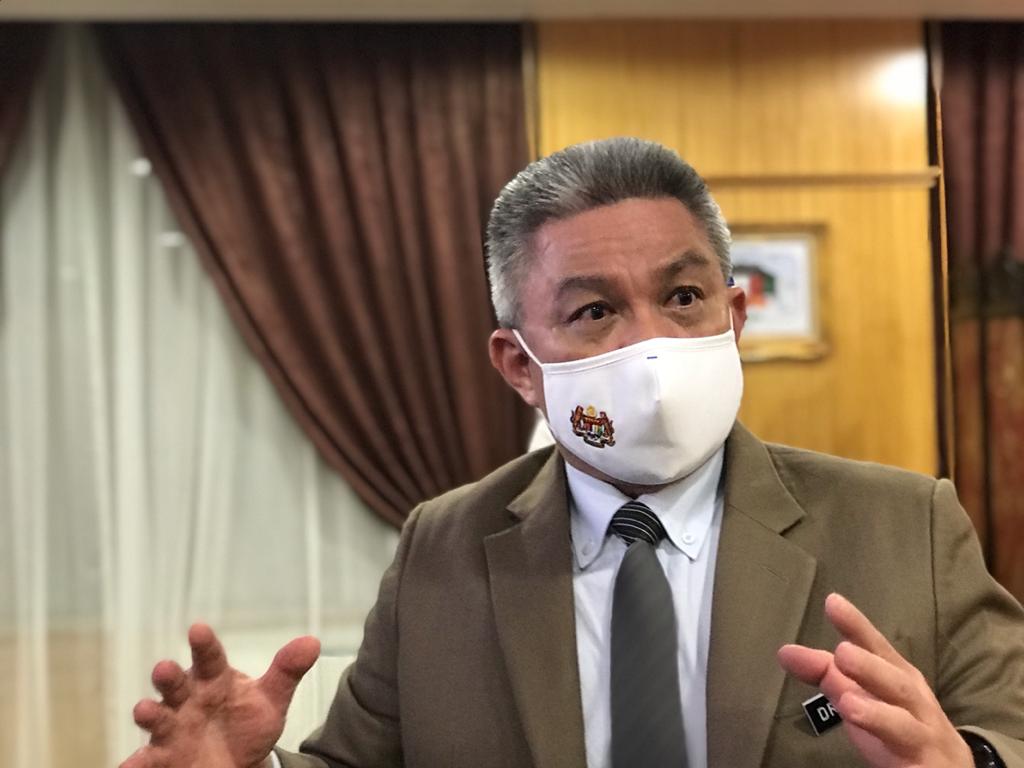KUALA LUMPUR, April 26 — The Ministry of Health (MOH) has proposed to ban arrivals from India to prevent the spread of a new Covid-19 variant emerging from India dubbed the double mutant strain.
Health Minister Dr Adham Baba emphasised today that quick actions will be taken to prevent the entry of the variant, which has a so-called double mutation, into Malaysia that has already detected 28 Covid-19 cases with variants of concern: five from the UK (B.1.17), two from Nigeria (B.1.525), and 21 from South Africa (B.1.351)
“There are cases with variants of concern from abroad. So today, we will propose in the special meeting to overcome the spread of variants of concern, especially from India,” Dr Adham mentioned in a press conference today.
“Most likely, we will urge the government to stop flights from India as there is a double mutant strain of the virus.”
A “variant of concern” is defined as a variant with evidence of an increase in transmissibility, more severe disease, or reduced effectiveness of treatments or vaccines. The World Health Organization (WHO) currently categorises the Indian variant as a “variant of interest”, which means the variant is being monitored but is not yet of major concern.
India’s B.1.617 variant has two mutations identified as E484Q and E484K. DW reported that those mutations have also been detected in the South African variant, B.1.353, in the Brazilian variant, P1, and in some cases, the British B.1.17 variant.
India — which has been recording global daily increases of Covid-19 infections for five consecutive days, including 352,991 new cases in the last 24 hours — is experiencing the new B.1.617 double mutant strain that is considered to be more contagious and spreads quicker compared to other variants around the world.
Al Jazeera reported that the new variant in India (B.1.617) was initially detected in the country at the end of last year. However, India only acknowledged the presence of the mutated virus in the end of March this year. This new variant is also suspected to have fuelled the steep increase in Covid-19 cases in India, where the health care system is on the verge of collapse.
So far, many countries, including Singapore, the United States, United Kingdom, France, Canada, Iran, Kuwait, Indonesia, United Arab Emirates, and Italy have banned flights from India due to concern over the double mutant strain of the virus.
At the same time, Dr Adham today also suggested increasing the quarantine period of foreign returnees from selected countries.
“We propose to the government to increase the quarantine period from 10 days to 14 days for those who return from countries which have variants of concern. That decision can only be made by the National Security Council,” he said.
“We are worried if the virus which carries variants of concern will only emerge on the 10th or 11th day — (so we want) to prevent the widespread infection of these variants.”
At the same time, MOH also shared data on Malaysia’s genome sequencing of the SARS-CoV-2 virus, which causes Covid-19, that has been found in 28 Covid-19 cases so far. Twenty-one cases had the variant originating from South Africa, the B.1.351 variant, including four new local cases identified in genomic surveillance conducted from April 15 to 23.
Genome sequencing is a process to identify the order of a DNA which will help to study how genes work in an organism.
“Genome sequencing can only be done when the viral load is high. If the viral load is low, it will be difficult to get full genome sequencing,” Health deputy director-general Dr Hishamshah Mohd Ibrahim said in the same press meet.
“We still haven’t found the variant, which has double mutation, from India.”
Dr Hishamshah also mentioned that stringent precautionary measures are taken to prevent the spread of new Covid-19 variants from abroad returnees.
“Stricter testing procedures are being carried out on those who return from South Africa, the United Kingdom, Middle East countries, and South America to identify Covid-19 variants so as to not cause local transmissions,” Dr Hishamshah added.








